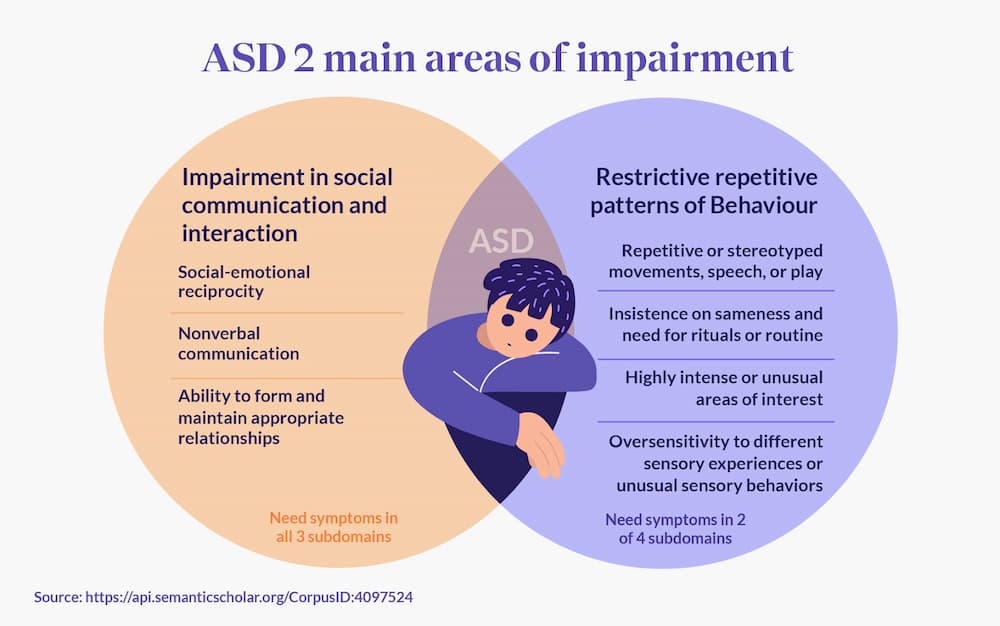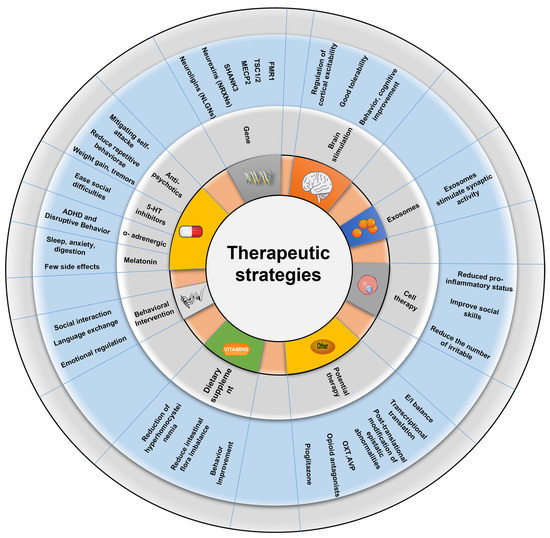Navigating emotional regulation through Autism Therapist methods
Recognizing the Influence of Behavioral Autism on Life and Social Interactions
You may not understand exactly how deeply behavior autism impacts life and social interactions. Individuals on the spectrum usually browse a globe loaded with communication difficulties and sensory overload. These challenges can cause aggravation and isolation, affecting their connections and overall well-being. Understanding these subtleties is necessary for fostering supportive settings. What approaches can we implement to develop more comprehensive spaces and significant connections? The answers could stun you.
Specifying Behavioral Autism and Its Attributes
Behavioral autism, frequently described as autism spectrum condition (ASD), includes a series of conditions defined by difficulties in social interaction, interaction, and repeated actions. You may discover that people with ASD usually struggle to translate social signs, which can result in misconceptions in discussions. They may find it tough to develop eye call or involve in tiny talk, making social situations feel overwhelming.
Interaction troubles can show up in different means, from delayed speech growth to a choice for using fewer words. Recurring habits, such as hand-flapping or shaking, can serve as coping systems to manage tension or sensory overload. These attributes can profoundly impact life, making it important for you to recognize and sustain those with ASD. By identifying these characteristics, you can cultivate an environment that promotes acceptance and encourages reliable interaction, assisting people with autism thrive in their everyday interactions.
The Range of Autism: Comprehending Variability in Behavior
Autism spectrum problem (ASD) isn't a one-size-fits-all diagnosis; it differs extensively amongst people. You may encounter individuals that are very verbal and engage quickly in discussions, while others may like solitary tasks or connect non-verbally.
Additionally, the way people with ASD reply to sensory input can vary substantially; some could be bewildered by loud sounds or bright lights, whereas others thrive in boosting atmospheres. The spectrum likewise includes distinctions in social interactions; some people may struggle to analyze social signs, while others navigate social setups with loved one ease. Understanding this irregularity is essential, as it aids you appreciate everyone's one-of-a-kind experience and tailor support to their certain needs, cultivating a much more comprehensive atmosphere for every person.
Communication Obstacles Encountered by Individuals With Autism
When you connect with individuals on the autism range, you may see their distinct interaction difficulties. They often encounter problems with both nonverbal and spoken cues, which can influence their social interactions. Understanding these barriers is essential for promoting far better connections and assistance.

Verbal Communication Problems
Several people on the autism range experience spoken communication troubles that can significantly affect their everyday communications. Your tone, speed, or volume may not align with social expectations, triggering others to misunderstand your objectives. Identifying these difficulties can assist you and your support network develop strategies to enhance interaction and foster better connections with others in your daily life.
Nonverbal Interaction Barriers
Spoken communication isn't the only challenge individuals on the autism spectrum face; nonverbal interaction obstacles can be simply as significant. These difficulties can lead to misunderstandings or misconceptions of social signs, making communications really feel complicated or overwhelming. By dealing with nonverbal interaction, you can find methods to enhance your social experiences and enhance your total high quality of life.
Social Communication Influences
Social interactions can usually really feel frustrating due to the unique interaction difficulties encountered by individuals with autism. Acknowledging these obstacles can help you locate techniques to improve interaction, such as practicing social abilities in risk-free setups or making use of visual aids. Comprehending your demands allows you to browse social interactions with better confidence and ease.
Social Communication and Connection Building in Autism
While structure partnerships can be testing for individuals with autism, recognizing their unique viewpoints and interaction styles can foster purposeful connections. You might discover that several individuals on the spectrum like direct interaction and might fight with social cues or tiny talk. By being uncomplicated in your communications, you can help develop a setting where they really feel comfy.
Engaging in shared rate of interests can also serve as a bridge to deeper connections. Whether it's a pastime, a favorite program, or a mutual enthusiasm, these common threads can open up doors to relationship.
Day-to-day Live Routine: Navigating Methods and difficulties
Navigating daily life regimens can be especially challenging for individuals with autism, specifically when unforeseen modifications take place. To browse these difficulties, think about executing aesthetic schedules or lists.
Developing a routine that consists of sensory breaks can likewise be beneficial. This assists develop an understanding setting.
Lastly, technique mindfulness techniques to manage stress and anxiety and anxiety. Easy breathing workouts or basing strategies can make a considerable distinction. By incorporating these approaches, you can boost your daily regimen and minimize disturbances, making life feel more workable.
Toughness and Capabilities of People on the Autism Range
Recognizing life routines is simply one aspect of the autism experience. Many individuals on the autism spectrum have amazing staminas and abilities that establish them apart. You might find that your attention to information is phenomenal, permitting you to master tasks that need precision best site and emphasis. Your capacity to assume outside the box can cause innovative solutions in numerous scenarios.
Furthermore, your memory abilities usually beam, specifically in areas of interest. Autism Therapist. This knack for preserving info can make you an important source in fields like art, scientific research, or innovation. You may additionally show strong aesthetic reasoning, enabling you to visualize complex concepts and fix troubles artistically
In addition, your special viewpoint on the globe can cultivate compassion and understanding in others, enhancing social interactions. Embracing these staminas not only boosts your confidence yet also helps others appreciate the diverse abilities you bring to the table.
Developing Inclusive Environments for People With Autism
Creating comprehensive settings for individuals with autism begins with making sensory-friendly rooms that accommodate their special demands. You can also foster opportunities for social interaction, assisting to construct relationships and connections. By making these modifications, you'll add to a much more inviting ambience for everybody.
Designing Sensory-Friendly Spaces
While making sensory-friendly spaces, it's important to reflect on the unique needs of people with autism. Integrate silent zones where individuals can pull away and charge when bewildered. Consist of aesthetic routines or clear signs to aid individuals browse the space with confidence.
Promoting Social Communication Opportunities
Designing sensory-friendly spaces not only addresses individual comfort yet likewise sets the phase for meaningful social interactions amongst individuals with autism. To advertise these interactions, produce comprehensive settings that invite participation. Arrange structured tasks, like art classes or team games, that urge collaboration without frustrating sensory input. Use visual help and clear communication to assist everybody engage conveniently. Encourage peer mentoring, matching people with autism with encouraging peers that can lead them via social scenarios. In addition, take into consideration organizing normal community occasions that commemorate neurodiversity, fostering acceptance and understanding amongst all individuals. By applying these methods, you can improve social opportunities, assisting individuals with autism build relationships and reinforce their my sources social skills in a risk-free, inviting atmosphere.

Regularly Asked Questions
Exactly How Can Pals Support Somebody With Behavioral Autism?
You can sustain a pal with behavior autism by being patient, listening proactively, and appreciating their borders. Participate in activities they appreciate, connect honestly, and develop a comfy atmosphere where they really feel valued and recognized.
What Resources Are Readily Available for Parents of Children With Autism?
You can check out different resources for moms and dads of kids with autism, consisting of assistance teams, academic sites, and neighborhood neighborhood services. Linking with other moms and dads can likewise provide important understandings and shared experiences browse this site to assist navigate difficulties.
Can Behavioral Autism Change With Time?

Yes, behavior autism can alter gradually. You might observe changes in communication, social skills, and behavior as your kid grows. Early intervention and support usually play crucial functions in these developmental adjustments.
Exactly How Do Sensory Level Of Sensitivities Affect Day-to-day Live?
Sensory sensitivities can make everyday experiences overwhelming. You could battle with brilliant lights or loud sounds, resulting in stress and anxiety or avoidance. Discovering settings that suit your requirements can greatly enhance your convenience and general day-to-day live.
What Are Common Misconceptions Concerning Behavioral Autism?
You may think behavior autism only affects interaction skills, but it's more complex. Lots of think individuals do not have empathy or knowledge, which isn't true. Recognizing these mistaken beliefs assists foster approval and assistance for those on the spectrum.
Behavioral autism, commonly referred to as autism range disorder (ASD), incorporates an array of problems identified by difficulties in social interaction, communication, and recurring behaviors.Social interactions can typically feel overwhelming due to the special interaction difficulties encountered by individuals with autism.Creating sensory-friendly rooms not just addresses private convenience however likewise establishes the stage for purposeful social interactions amongst people with autism. Motivate peer mentoring, pairing people with autism with supportive peers that can direct them with social scenarios. By executing these approaches, you can improve social possibilities, helping individuals with autism develop friendships and strengthen their social skills in a secure, welcoming environment.